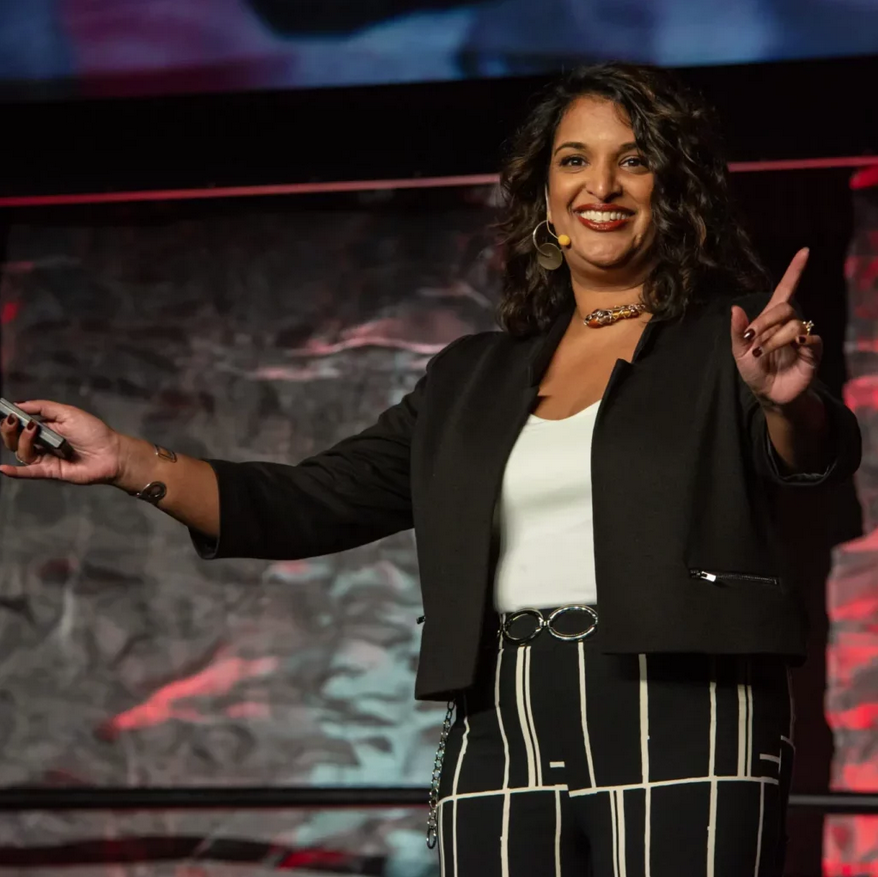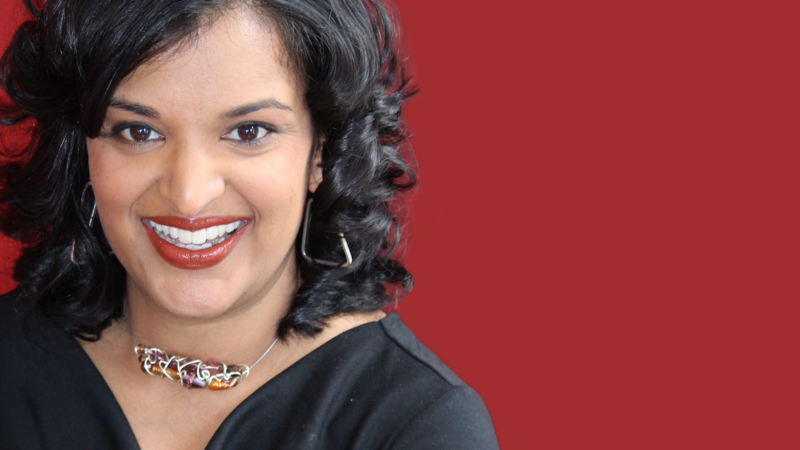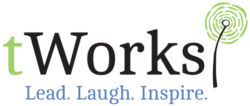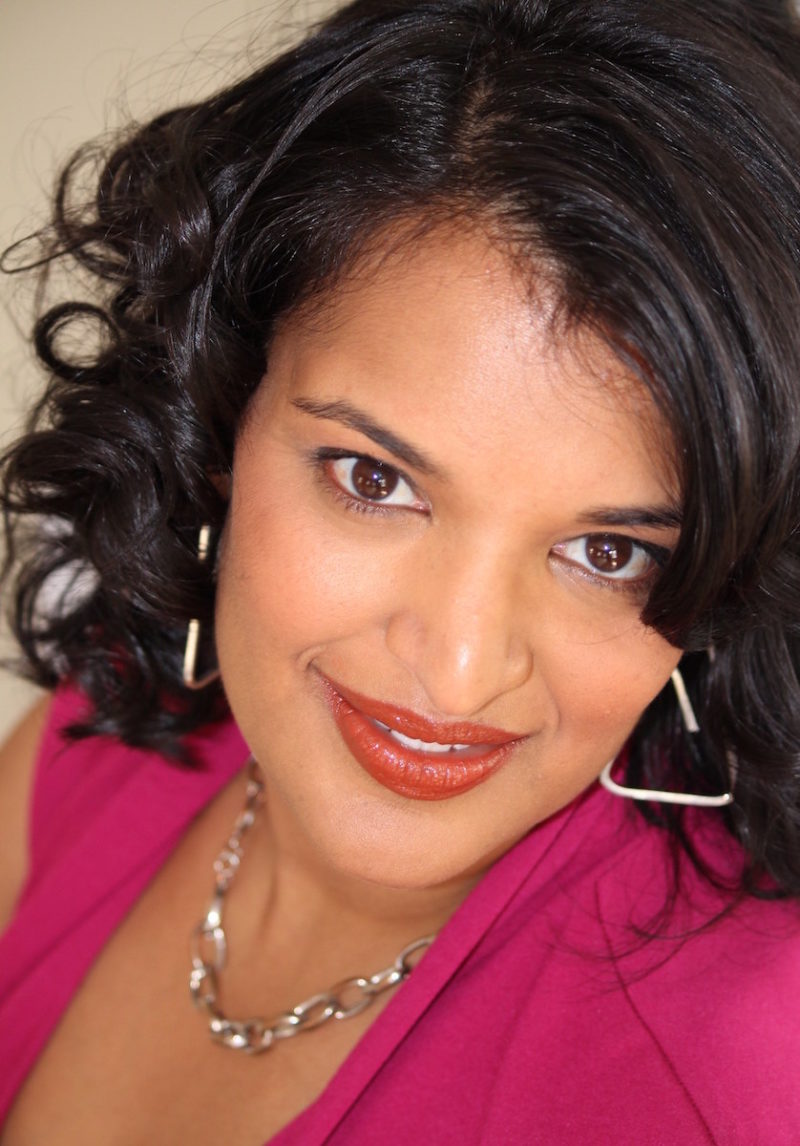with Tina Varughese
Cultural Diversity Keynote Speaker
Unconscious bias is all too common and a critical topic to understand as we evolve ourselves and our workplaces. I was honoured to bring someone extremely well-versed on this topic, Tina Varughese, to my podcast. I met Tina at the Canadian Association for Professional Speakers (CAPS), as we are both keynote speakers. Tina’s speaking centers around Diversity, Equity and Inclusion (DEI), which she describes focusing on well before this topic became “sexy.” Unconscious bias became a natural add-on to the DEI umbrella, and Tina recognized the importance of understanding it both professionally and personally.
Episode 60 | Exploring the Human Side of Unconscious Bias at Work
What is unconscious bias and why does it matter?
Tina Varughese explains how unconscious biases are learned behaviours, attitudes and beliefs that sit in our unconscious state. We are not born with bias, however, unconscious bias develops in us over time. Much of it happens gradually through how, where and by whom we are raised, our communities and organizations, and television/social media. We are influenced over time, and we don’t realize it’s happening. Tina aptly says that “If we have a brain, we have bias!”
Understanding and addressing our unconscious biases matter as these affect many imperative decisions at work and at home. For example, at work, our unconscious biases impact recruitment, retention, hiring, firing, promotion, invitations to events, etc. We need to be aware of where it’s happening so we can interrupt it to create more equitable and inclusive workplaces.
What types of unconscious biases are most common?
We hold unconscious bias in 7 key areas: gender, race, religion, sexual orientation, weight, age, and disability (physical and emotional). Believe it or not, there are 170 statistically proven unconscious biases we can hold towards others. The most common are racial bias, gender bias, parental or maternal bias, and affinity bias. The effects of unconscious biases happen gradually and have a trickle-down effect on workplace culture.
Affinity bias is about being drawn to people who are similar to us or remind us of ourselves, and is the most difficult to recognize at work. When someone reminds us of ourselves we are likely to say they would make a great culture fit. Yet when it comes to someone who is quite different from us, we may inadvertently screen them out when they may have actually been a great organizational fit.
Tina Varughese suggests we think about who are the trusted advisors we always go to for advice. Think about the top five of these for you and go through different categories (e.g., their gender, race, sexual orientation, etc.). In how many of these key areas are they the same as us? Try to ensure you have people who think differently than you to provide a more diverse lens. Variation on these factors is recommended, because if you’re always associating with the same people you’ll have a more limited perspective. Tina wrote a blog on this very topic: https://tworksforyou.ca/affinity-bias-affects-business-decisions/
What are you seeing in today’s organizations around unconscious bias?
Tina explains how there is much room for improvement. For example, when she does virtual keynotes (such as The Human Side of Unconscious Bias), in the comments attendees often say that the people who really needed to be there didn’t show up. This is a good reminder that our actions and our visibility matter.
The best leaders ensure they attend these keynotes in full, to show that they, too, need to learn about their own unconscious biases. Those who authentically share their own experiences and stories play an important role in helping this topic land.
“We are not born with bias, however, unconscious bias develops in us over time. Much of it happens gradually through how, where and by whom we are raised, our communities and organizations, and television/social media.”
How does unconscious bias impact organizations/business?
Tina is currently writing a book, and some of the interviews for the book she’s doing with foreign-born immigrants, who were already working globally before arriving in Canada. These immigrants bring an important global perspective to Canadian business. If you are biased against hiring immigrants, your unconscious bias may be interrupting global growth opportunities for your business, Tina explains. We are not as far along in globalization here in Canada compared to other countries, so this is an important opportunity that diversity brings.

What can leaders do when it comes to understanding and acting on unconscious biases at work?
Tina asserts that shame and blame approaches don’t work. More of a conversation is needed about our biases and how they may be getting in our way. She recommends talking to more people, which decreases our biases because everyone has a story to share. “I drive my kids crazy talking to every Uber driver. Their stories are resilient and compelling and interesting,” she explains. Indeed, from the janitor to the CEO, everyone has a story. Tina recommends coming from a place of curious compassion versus jaded judgment, which will greatly expand our perspectives.
How does unconscious bias relate to and impact psychological safety?
There’s a true tie between our unconscious biases and psychological safety at work, Tina explains. She gives the example of when there are “crickets” in the chat during virtual presentations or meetings. This lack of questions or comments suggests a lower degree of psychological safety as people don’t feel comfortable speaking up or offering ideas. “If you’re surrounded by crickets, you’re doing something wrong!” Tina asserts.
Tina Varughese encourages leaders to ask themselves: are you receiving feedback and are you open to it? As leaders, we’re often putting out fires and are unlikely to proactively seek feedback from others. Yet feedback should be continuous, specific, and constant and it needs to go two ways. Feedback improves the bottom line!
More of a conversation is needed about our biases and how they may be getting in our way. Tina recommends talking to more people, which decreases our biases because everyone has a story to share.
What is one book and one podcast you’d recommend for those wanting to dive deeper into unconscious bias?
“The Leader’s Guide to Unconscious Bias” by Pamela Fuller, Anne Chow, and Mark Murphy (an excellent starting point for those just getting into this topic area).
“Sway: Unravelling Unconcious Bias” by Pragya Agarwal – the social science of unconscious bias (a deeper dive that’s very research focused).
What’s your one wish for a better world?
Tina Varughese wishes that mothers would rule the world. “If that were the case, we wouldn’t have war and the world would be a better place!”
About Tina Varughese:
An Indo-Canadian daughter of first-generation parents, Varughese says her cultural background allows her to find “the best of both worlds” and shed light, knowledge, and, most importantly, universal humour into the changing workplace. Her highly entertaining, interactive, and practical keynotes leave attendees inspired to think, behave, act, and communicate with intention.
For fifteen years Varughese worked with immigrants in her roles with the Province of Alberta’s immigration office. She also ran her own successful relocation and settlement firm. Varughese draws from her experiences as an entrepreneur, mother, daughter, wife, sister, and friend when delivering keynotes on diversity and inclusion — topics that resonate with her both professionally and personally.
Varughese has been named one of “Canada’s Top 10 Notable Speakers” by Ignite Magazine for her ability to break down barriers and create a comfortable, inclusive, and fun space for attendees. She was the face of diversity, literally, having been chosen to participate in Dove’s campaign for Real Beauty, representing beauty in diversity.
The past president of the Canadian Association of Professional Speakers (Calgary), Varughese is a contributing writer for the Human Resource Institute of Alberta’s Network magazine, Calgary Real Estate News, and Home to Home magazine. She was also profiled in Alberta’s Venture Magazine.
Learn more about Tina on her website: https://tworksforyou.ca/






